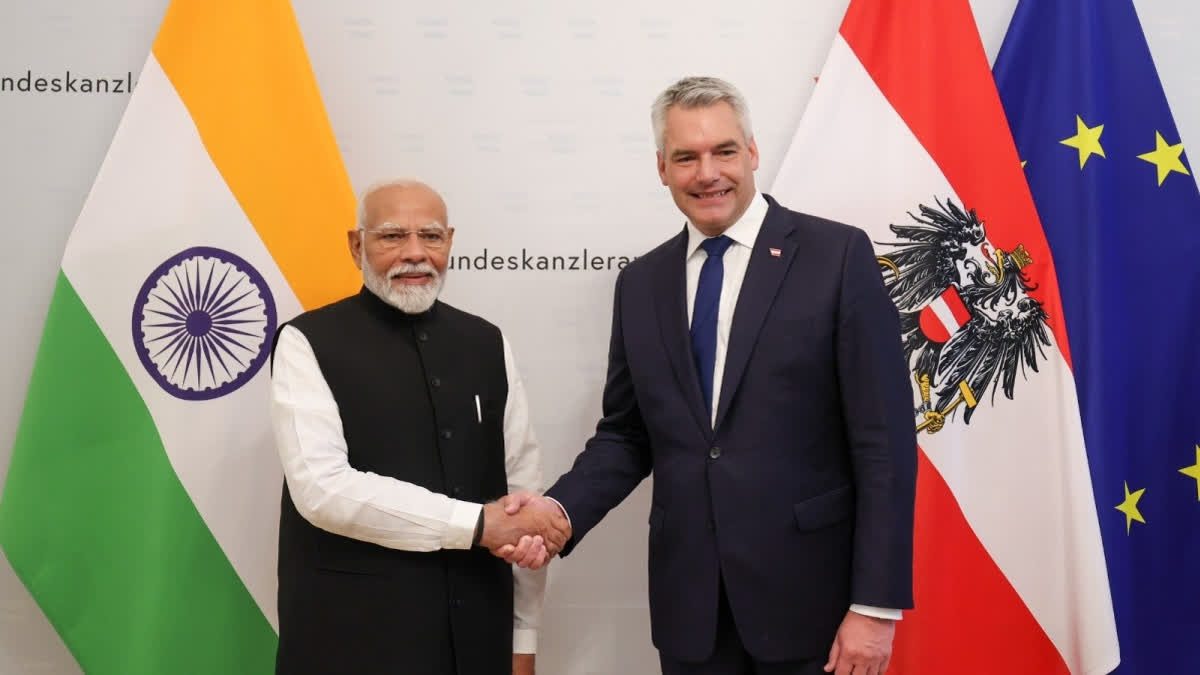Vienna:India and Austria on Wednesday supported any collective effort to facilitate a "peaceful resolution" consistent with international law and the UN Charter to the Ukraine conflict and said that achieving a comprehensive and lasting peace in the eastern European country requires bringing together all stakeholders.
A joint statement issued after the talks between Prime Minister Narendra Modi and Austrian Chancellor Karl Nehammer here said the two leaders exchanged in-depth assessments of recent developments in Europe as well as West Asia.
The two leaders underscored the importance of democratic countries such as India and Austria working together to contribute to international and regional peace and prosperity. Modi arrived in Vienna from Moscow on Tuesday night after meeting Russian President Vladimir Putin.
Prime Minister Modi and Chancellor Nehammer "exchanged in-depth assessments of recent developments in Europe as well as West Asia/Middle East. They noted the complementarities in the approaches of the two countries, that prioritise efforts towards restoring peace and avoiding armed conflict as well as rigorous adherence to international law and the UN Charter," the joint statement said.
"Concerning the war in Ukraine, both leaders supported any collective effort to facilitate a peaceful resolution consistent with international law and the UN Charter. Both sides believe that achieving a comprehensive and lasting peace in Ukraine requires bringing together all stakeholders and a sincere and earnest engagement between the two parties to the conflict," it added.
Prime Minister Modi has reaffirmed that "this is not the time for war" and India and Austria emphasised dialogue and diplomacy for the earliest possible restoration of peace and stability.
In the joint statement, both leaders said that they "reinforced their commitment to a free, open and rules-based Indo-Pacific" in accordance with the international law of the sea as reflected in UNCLOS and with "full respect for the sovereignty, territorial integrity and freedom of navigation" to the benefit of maritime security and international peace and stability, in a veiled reference to China which is flexing muscles in the region.
The two leaders reiterated their unequivocal condemnation of terrorism in all its forms and manifestations, including cross-border and cyber-terrorism and emphasised that no country should provide safe haven to those who finance, plan, support or commit terrorist acts, in an apparent reference to Pakistan and its all-weather ally China which has often put on hold on proposals in the UN to blacklist the Pakistan-based wanted terrorists.
